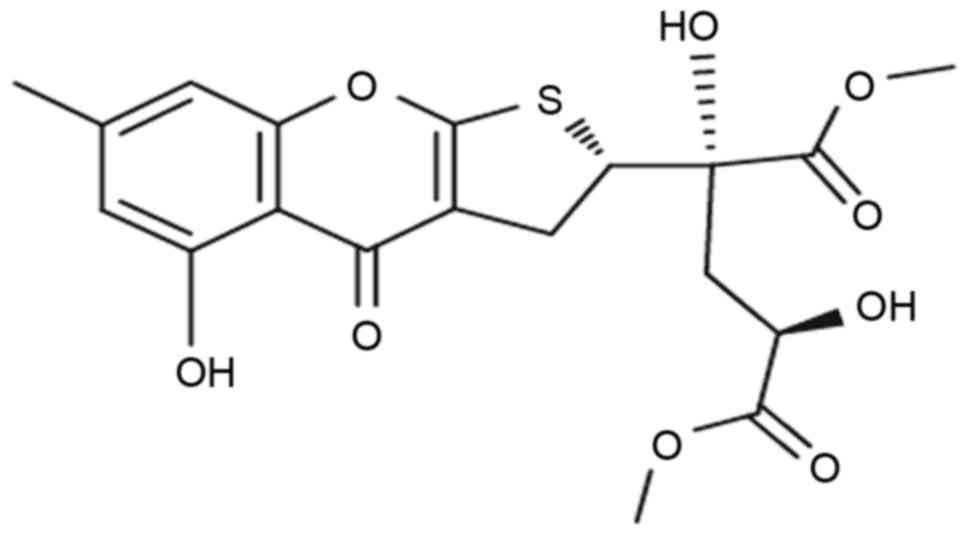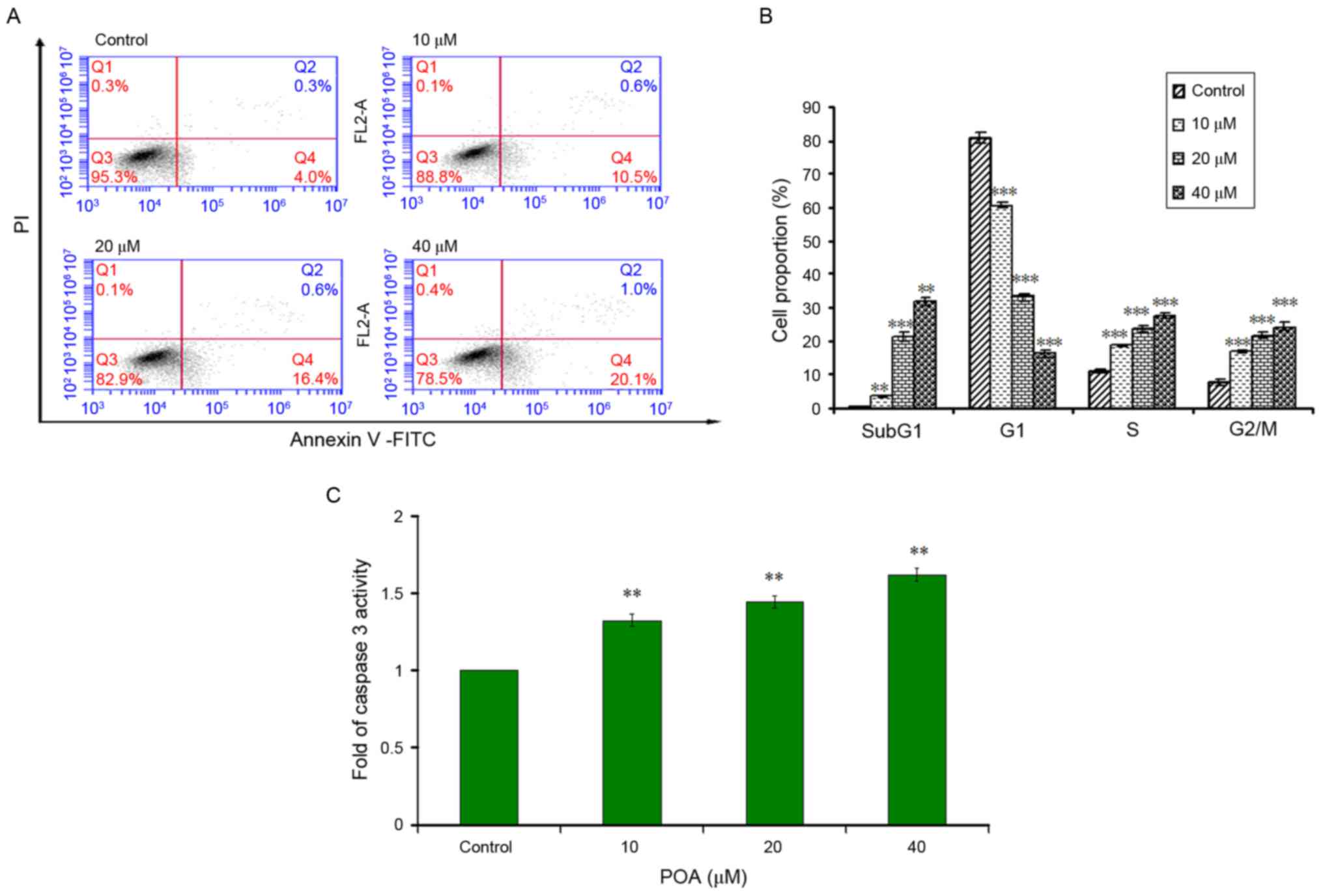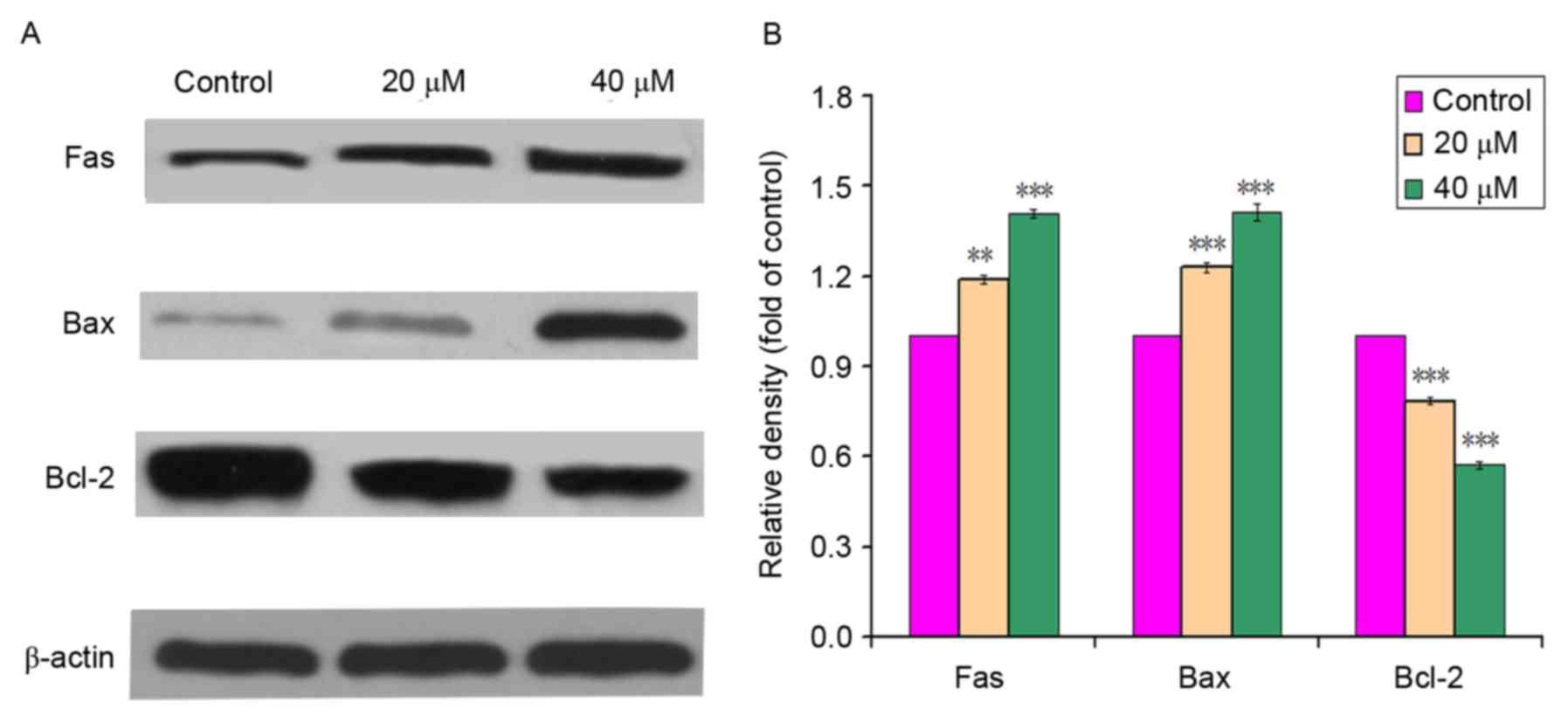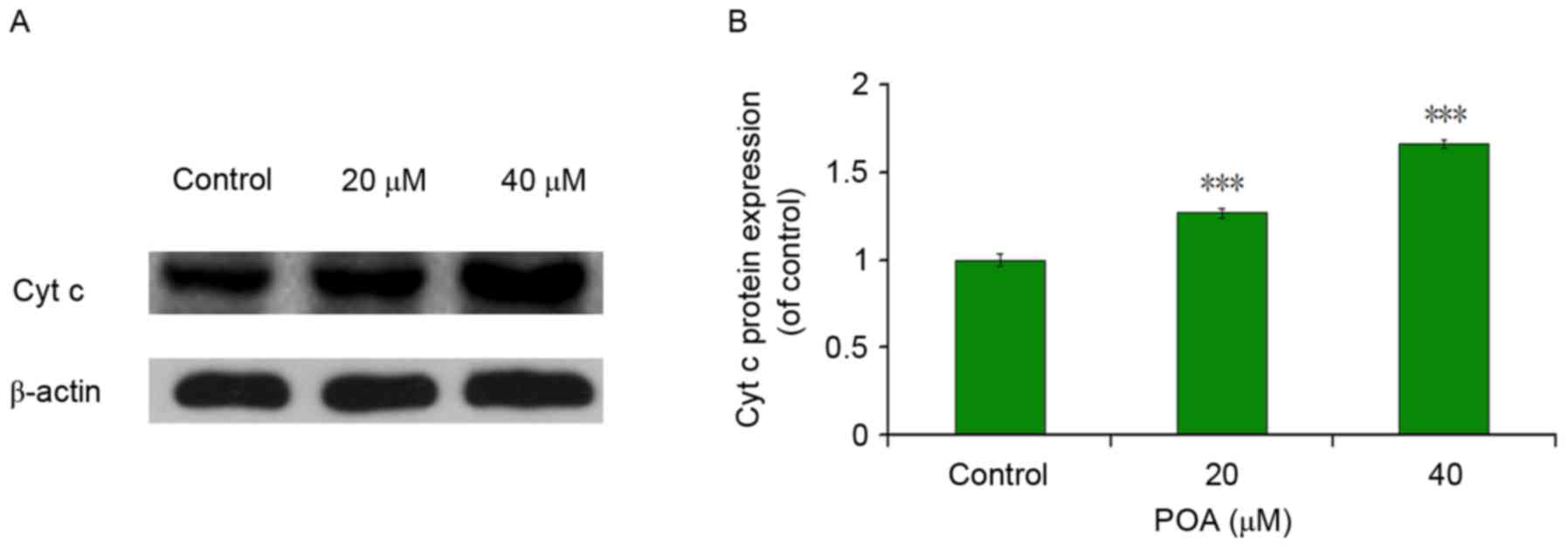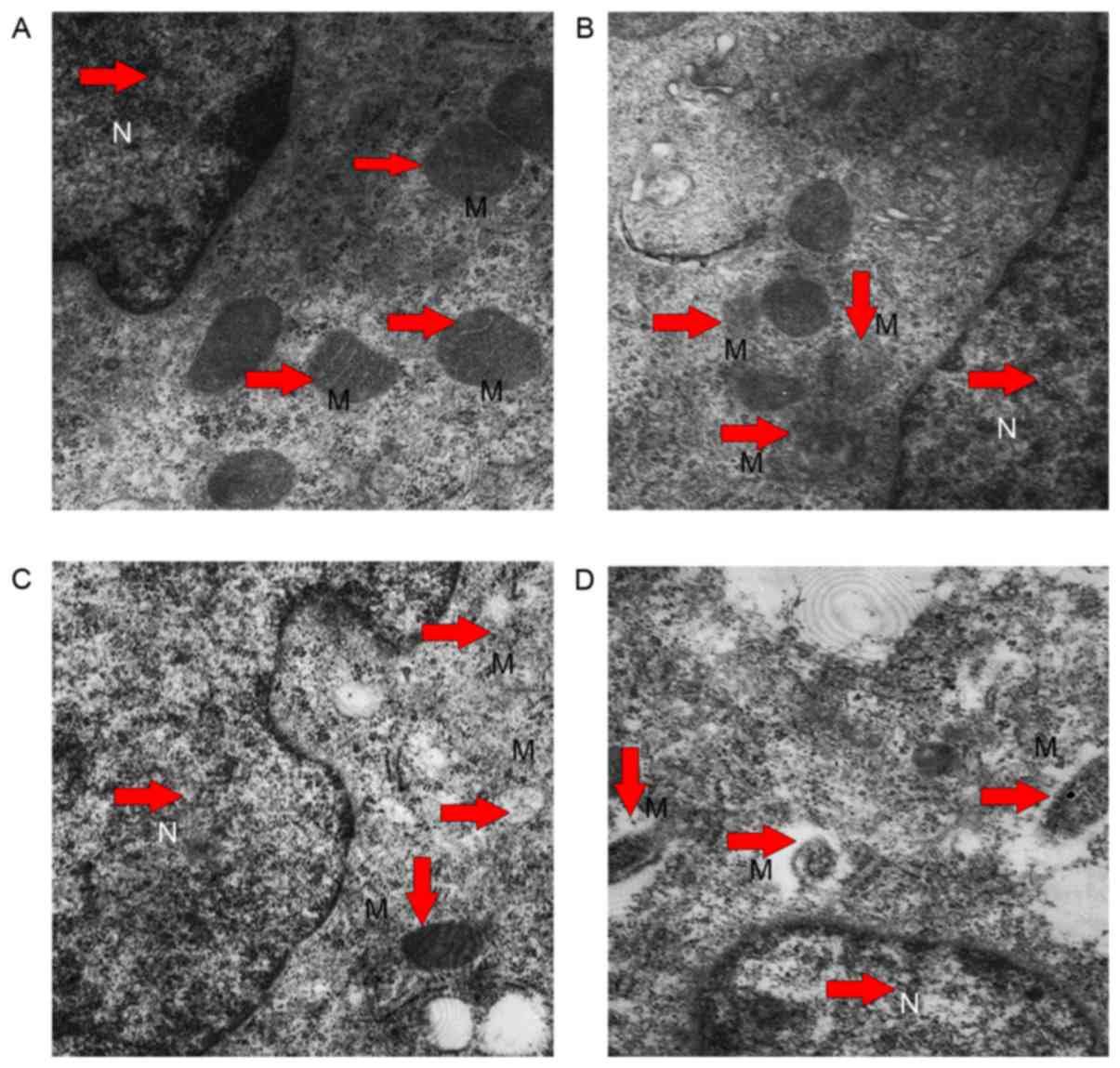|
1
|
Russmann S, Kullak-Ublick GA and
Grattagliano I: Current concepts of mechanisms in drug-induced
hepatotoxicity. Curr Med Chem. 16:3041–3053. 2009. View Article : Google Scholar : PubMed/NCBI
|
|
2
|
Gerets HH, Tilmant K, Gerin B, Chanteux H,
Depelchin BO, Dhalluin S and Atienzar FA: Characterization of
primary human hepatocytes, HepG2 cells and HepaRG cells at the mRNA
level and CYP activity in response to inducers and their
predictivity for the detection of human hepatotoxins. Cell Biol
Toxicol. 28:69–87. 2012. View Article : Google Scholar : PubMed/NCBI
|
|
3
|
O'Brien PJ, Irwin W, Diaz D,
Howard-Cofield E, Krejsa CM, Slaughter MR, Gao B, Kaludercic N,
Angeline A, Bernardi P, et al: High concordance of drug-induced
human hepatotoxicity with in vitro cytotoxicity measured in a novel
cell-Based model using high content screening. Arch Toxicol.
80:580–604. 2006. View Article : Google Scholar : PubMed/NCBI
|
|
4
|
Aggarwal BB, Sundaram C, Malani N and
Ichikawa H: Curcumin: The Indian solid gold. Adv Exp Med Biol.
595:1–75. 2007. View Article : Google Scholar : PubMed/NCBI
|
|
5
|
Houbraken J, Frisvad JC and Samson RA:
Fleming's penicillin producing strain is not Penicillium
chrysogenum but P. rubens. IMA Fungus. 2:87–95. 2011.
View Article : Google Scholar : PubMed/NCBI
|
|
6
|
Cragg GM and Newman DJ: Natural products:
A continuing source of novel drug leads. Biochim Biophys Acta.
1830:3670–3695. 2013. View Article : Google Scholar : PubMed/NCBI
|
|
7
|
Senni K, Pereira J, Gueniche F,
Delbarre-Ladrat C, Sinquin C, Ratiskol J, Godeau G, Fischer AM,
Helley D and Colliec-Jouault S: Marine polysaccharides: A source of
bioactive molecules for cell therapy and tissue engineering. Mar
Drugs. 9:1664–1681. 2011. View Article : Google Scholar : PubMed/NCBI
|
|
8
|
Sun YL, Bao J, Liu KS, Zhang XY, He F,
Wang YF, Nong XH and Qi SH: Cytotoxic dihydrothiophene-condensed
chromones from marine-derived fungus Penicillium oxalicum.
Plata Med. 79:1474–1479. 2013. View Article : Google Scholar
|
|
9
|
Zhang XY, Bao J, Wang GH, He F, Xu XY and
Qi SH: Diversity and antimicrobial activity of culturable fungi
isolated from six species of the South China Sea gorgonians. Microb
Ecol. 64:617–627. 2012. View Article : Google Scholar : PubMed/NCBI
|
|
10
|
Cai Q, Wei J, Zhao W, Shi S, Zhang Y, Wei
R, Zhang Y, Li W and Wang Q: Toxicity of Evodiae fructus on
rat liver mitochondria: The role of oxidative stress and
mitochondrial permeability transition. Molecules. 19:21168–21182.
2014. View Article : Google Scholar : PubMed/NCBI
|
|
11
|
Zhang JQ, Shen M, Zhu CC, Yu FX, Liu ZQ,
Ally N, Sun SC, Li K and Liu HL: 3-Nitropropionic acid induces
ovarian oxidative stress and impairs follicle in mouse. PLoS One.
9:e865892014. View Article : Google Scholar : PubMed/NCBI
|
|
12
|
Zhang XY, Bao J, Zhong J, Xu XY, Nong XH
and Qi SH: Enhanced production of a novel cytotoxic chromone
oxalicumone a by marine-derived mutant Penicillium oxalicum
SCSIO 24-2. Appl Microbiol Biotechnol. 97:9657–9663. 2013.
View Article : Google Scholar : PubMed/NCBI
|
|
13
|
Jacobson MD, Weil M and Raff MC:
Programmed cell death in the animal development. Cell. 88:347–354.
1997. View Article : Google Scholar : PubMed/NCBI
|
|
14
|
Pirocanac EC, Nassirpour R, Yang M, Wang
J, Nardin SR, Gu J, Fang B, Moossa AR, Hoffman RM and Bouvet M:
Bax-induction gene therapy of pancreatic cancer. J Surg Res.
106:346–351. 2002. View Article : Google Scholar : PubMed/NCBI
|
|
15
|
Wilson MR: Apoptotic signal transduction:
Emerging pathways. Biochem Cell Biol. 76:573–782. 1998. View Article : Google Scholar : PubMed/NCBI
|
|
16
|
Daniel PT, Wieder T, Sturm I and
Schulze-Osthoff K: The kiss of death: Promises and failures of
death receptors and ligands in cancer therapy. Leukemia.
15:1022–1032. 2001. View Article : Google Scholar : PubMed/NCBI
|
|
17
|
Itoh N, Yonehara S, Ishii A, Yonehara M,
Mizushima S, Sameshima M, Hase A, Seto Y and Nagata S: The
polypeptide encoded by the cDNA for human cell surface antigen fas
can mediate apoptosis. Cell. 66:233–243. 1991. View Article : Google Scholar : PubMed/NCBI
|
|
18
|
Waring P and Müllbacher A: Cell death
induced by the Fas/Fas ligand pathway and its role in pathology.
Immunol Cell Biol. 77:312–317. 1999. View Article : Google Scholar : PubMed/NCBI
|
|
19
|
Certo M, Del Gaizo V, Nishino M, Wei G,
Korsmeyer S, Armstrong SA and Letai A: Mitochondria primed by death
signals determine cellular addiction to antiapoptotic BCL-2 family
members. Cancer Cell. 9:351–365. 2006. View Article : Google Scholar : PubMed/NCBI
|
|
20
|
Yang J, Liu X, Bhalla K, Kim CN, Ibrado
AM, Cai J, Peng TI, Jones DP and Wang X: Prevention of apoptosis by
Bcl-2: Release of cytochrome c from mitochondria blocked. Science.
275:1129–1132. 1997. View Article : Google Scholar : PubMed/NCBI
|
|
21
|
Lanave C, Santamaria M and Saccone C:
Comparative genomics: The evolutionary history of the Bcl-2 family.
Gene. 333:71–79. 2004. View Article : Google Scholar : PubMed/NCBI
|
|
22
|
Hussain SM and Frazier JM: Cellular
toxicity of hydrazine in primary rat hepatocytes. Toxicol Sci.
69:424–432. 2002. View Article : Google Scholar : PubMed/NCBI
|
|
23
|
Valko M, Jomova K, Rhodes CJ, Kuča K and
Musílek K: Redox- and non-redox-metal-induced formation of free
radicals and their role in human disease. Arch Toxicol. 90:1–37.
2016. View Article : Google Scholar : PubMed/NCBI
|
|
24
|
Farber JL, Kyle ME and Coleman JB:
Mechanisms of cell injury by activated oxygen species. Lab Invest.
62:670–679. 1990.PubMed/NCBI
|
|
25
|
Sinha K, Das J, Pal PB and Sil PC:
Oxidative stress: The mitochondria-dependent and
mitochondria-independent pathways of apoptosis. Arch Toxicol.
87:1157–1180. 2013. View Article : Google Scholar : PubMed/NCBI
|
|
26
|
Yao J, Jiang Z, Duan W, Huang J, Zhang L,
Hu L, He L, Li F, Xiao Y, Shu B and Liu C: Involvement of
mitochondrial pathway in triptolide-induced cytotoxicity in human
normal liver L-02 cells. Biol Pharm Bull. 31:592–597. 2008.
View Article : Google Scholar : PubMed/NCBI
|
|
27
|
Ramachandran A, Lebofsky M, Baines CP,
Lemasters JJ and Jaeschke H: Cyclophilin d deficiency protects
against acetaminophen-induced oxidant stress and liver injury. Free
Radic Res. 45:156–164. 2011. View Article : Google Scholar : PubMed/NCBI
|
|
28
|
Haasio K, Koponen A, Penttilä KE and
Nissinen E: Effects of entacapone and tolcapone on mitochondrial
membrane potential. Eur J Pharmacol. 453:21–26. 2002. View Article : Google Scholar : PubMed/NCBI
|
|
29
|
Green DR and Reed JC: Mitochondria and
apoptosis. Science. 281:1309–1312. 1998. View Article : Google Scholar : PubMed/NCBI
|
|
30
|
Urra FA, Cordova-Delgado M, Pessoa-Mahana
H, Ramirez-Rodriguez O, Weiss-Lopez B, Ferreira J and
Araya-Maturana R: Mitochondria: A promising target for anticancer
alkaloids. Curr Top Med Chem. 13:2171–2183. 2013. View Article : Google Scholar : PubMed/NCBI
|



